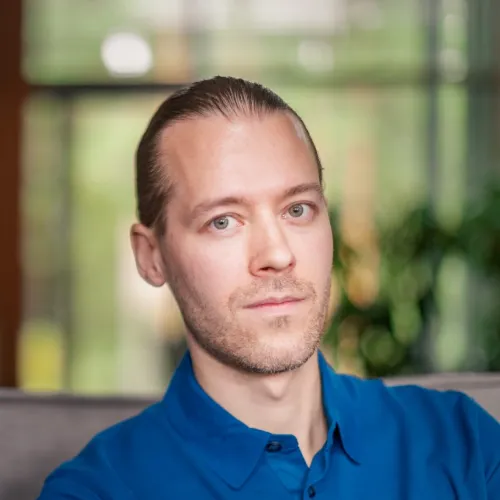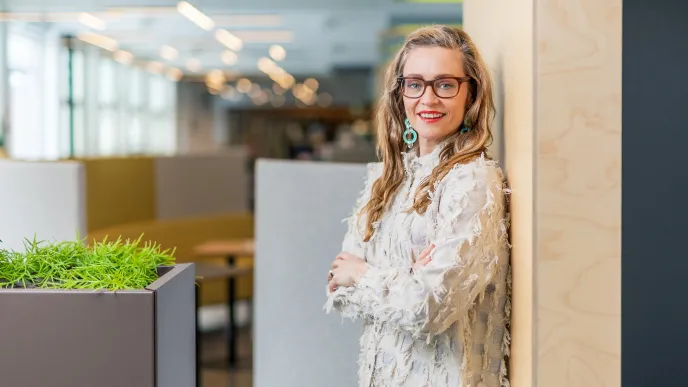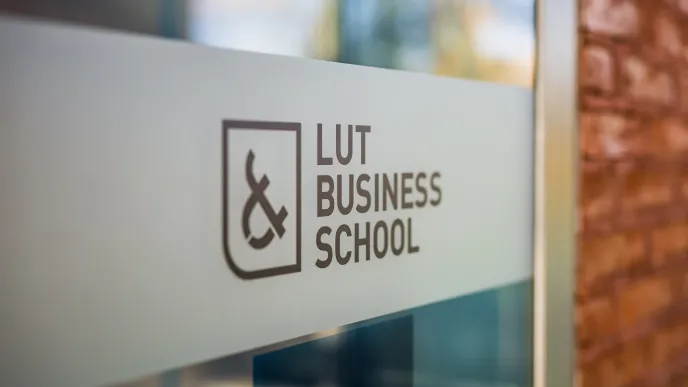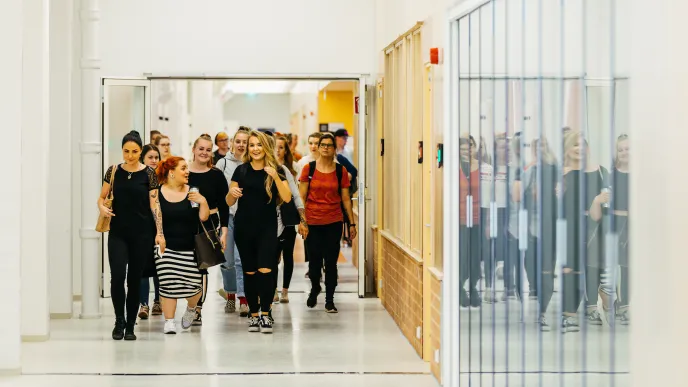People increasingly need to feel their work has a purpose. This requires new type of know-how in corporate management. A sense of purpose is connected to what the company does but also to how it operates.
Another driver for change is the increasing importance of data as a source of growth. Data is a quickly increasing raw material that will be utilised in the development of new services and business models. The rise of the data economy requires understanding for instance the availability, usability and ethical use of data.
A third strong trend is sustainability, which is connected to the two above-mentioned phenomena. It will be necessary to take the climate, biodiversity and circular economy into consideration in the development of business models in the future.
This is how Jyrki Katainen from the innovation fund Sitra describes the future.
"In terms of sustainability, we need to find solutions for decoupling biodiversity loss and economic growth. As in combatting climate change, we need market-based ways to prevent the loss of biodiversity. Even though this development is in its infancy, we can already see encouraging examples of pioneering businesses where financial success goes hand in hand with the preservation of nature," Katainen outlines.
Progress in sustainability is monitored
Sustainability is a cross-cutting theme in the programme portfolio of the LUT School of Business and Management – from Bachelor's to doctoral studies. The school's clear objective is to educate responsible business professionals.
Graduates from the LUT School of Business and Management (LBM) consider their skills in sustainability and ethics to be at a higher level than their peers from other Finnish business schools. This was the outcome of a graduate survey by Finnish Business School Graduates.
LBM's Dean Sami Saarenketo says that responsible business skills are a learning outcome that is monitored and measured in all of the school's programmes.
"All of our prorgammes include compulsory courses with learning outcomes related to responsibility or sustainability. We have also started measuring and analysing how our students perform in terms of these learning outcomes. If need be, we will adjust our actions," Saarenketo says. In 2019–2020, a total of 15 per cent of LBM's Master's theses dealt with sustainability and responsibility.
"We preach sustainability also beyond our school: on courses at the LAB University of Applied Sciences, on massive open online courses or MOOCs, and at Junior University. We are reaching future professionals of many fields," lists Post-Doctoral Researcher Laura Olkkonen.
The school's investments in sustainability and responsibility are also manifest in its research. In 2019–2021, two new sustainability-related projects were started with funding from the Academy of Finland, three with EU funding, and two with funding from Finnish foundations.
One fourth of all of LUT University's research can be linked to the UN's Sustainable Development Goals. LUT also has several of its own sustainability goals: it has, for instance, pledged to become carbon-negative by 2024.
LUT a top contender in sustainability research
The largest Nordic corporate responsibility network Finnish Business & Society (FIBS) lists human rights, biodiversity, fair data, and dialogue between industries and government as current responsibility-related trends.
LBM's Post-Doctoral Researcher Anne Quarshie recognises the demand for building trust between different actors. "Hundreds of future leaders and experts graduate from LUT annually. They have a good grasp of the basics and current themes of sustainable, responsible and ethical business," she says.
According to Quarshie, LBM's courses deal with topics that pioneering managers are still trying to take in.
"We have a highly competitive palette of compulsory Bachelor's and Master's courses and minor studies in sustainable business. For example, on an advanced corporate ethics course, students learn about many topical themes, including responsible data, human rights, forced labour and human trafficking in supply chains, diversity of human resources, and responsible and ethical investing."
The basic course in corporate ethics that is compulsory in some of the programmes reviews data ethics and the limits of growth. The course also touches upon the loss of biodiversity, forced labour and ethics of robotisation.
Quarshie says that all of LBM's Bachelor's students learn about the loss of biodiversity and the Earth's other limits in a compulsory sustainable business and development course. LBM's courses apply both practical examples and the school's research. The research also extends to themes of the working world, such as employee rights in a supply chain, coping at work, and equality and non-discrimination.
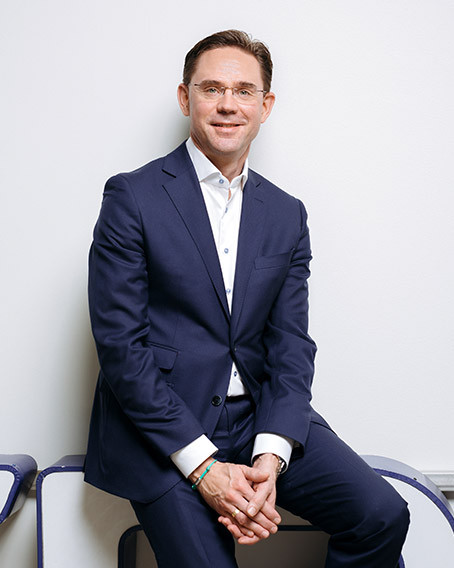
Jyrki Katainen
Photo: Miikka Pirinen
How does the corporate world deal with biodiversity loss?
Jyrki Katainen points out that humankind is wealthier than ever, but meanwhile, biodiversity is decreasing faster than ever before in human history. The repercussions are grave and far-reaching not only for human health and livelihood but also the economy. This was the conclusion of a report published in February by the British economist Partha Dasgupta.
"Citizens and businesses are well aware of the necessity to curb climate change. This has led to changes in consumer behaviour and business activities. Responsible investing in the financial market aims to avoid investments in activities that produce carbon dioxide emissions," Katainen says.
A similar increase in awareness and actions has yet to take place for biodiversity loss even though researchers have generated related data for a long time. Globally, roughly a million species are endangered, and in Finland the share of endangered species is just under 12 per cent.
"We have been developing our society and economy with little regard for biodiversity. Nature has an absolute value, but it also offers us valuable ecosystem services which yield food, raw materials, clean water and energy," Katainen analyses.
Katainen mentions that the technology industry was the first sector in Finland to commit to making industry impacts on biodiversity positive.
The forest industry company UPM has made a similar commitment and has an action plan in place for the Finnish forests it owns. Rudus, which manufactures stone-based products, is a shining example of how environmental impacts that were previously considered to harm nature and damage the company's reputation can be turned around into success factors," Katainen states.
The Finnish Carbon action project is an encouraging example of how changes in cultivation practices can strengthen biodiversity, increase carbon sequestration, and possibly even increase crops and income.
"Financial markets are also starting to show an interest in stopping biodiversity loss as a part of responsible investment activities. We need new tools to identify risks related to the loss of biodiversity and to measure biodiversity," Katainen says.
LUT specialises in corporate collaboration.
"We at the LUT School of Business and Management choose to think that businesses are part of the solution rather than the problem," says Professor Paavo Ritala.
As an example, Ritala mentions circular economy business models, which help companies use resources more efficiently and reduce negative environmental impacts.
"In the long run, companies that offer the best value to their customers but take societal and environmental aspects into account will fare best. Innovative long-term thinking is needed in every sector," Ritala estimates.
Commitment to international goals yields results
The LUT School of Business and Management is committed to the UN's Principles for Responsible Management Education (PRME), which aim to tie sustainable and internationally recognised values to education and research. LBM's latest PRME report has recently been published.
LBM's PRME coordinator Laura Olkkonen explains that the report is meant to describe what has already been done and what will be done in the future. In addition, the report analyses how sustainability and responsibility have increased in the school's activity in the past few years.
"LBM has in recent years made efforts to ensure that learning about sustainability and responsibility is not left up to the student alone. All of our students learn about what responsibility means to them as future professionals in their field. They learn to apply sustainability thinking to the challenges of their own field, be it analytics, entrepreneurship, marketing or supply management," Olkkonen says.
In the prestigious Higher Education Impact Ranking 2021, LUT University was one of the world's top 300 universities out of 1 115.
Sitra is an independent fund established by the Finnish Parliament. Its activity is based on the Act on Sitra, the Finnish Innovation Fund. Sitra describes itself as a future-oriented fund that lays a foundation for the renewal of Finland. In its strategy, updated in 2021, Sitra lists three key themes: sustainability solutions, a fair data economy, and democracy and engagement. Jyrki Katainen is a member of the LUT Advisory Board.
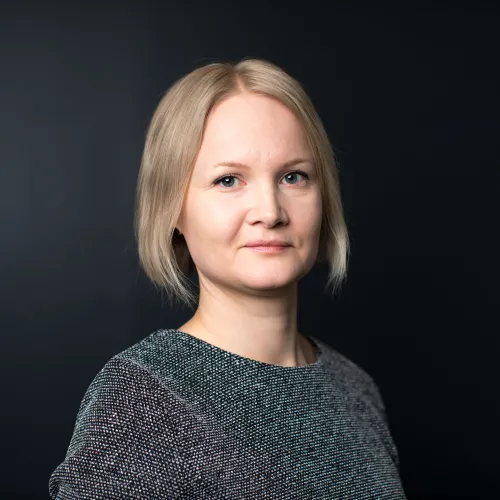
Laura Olkkonen
